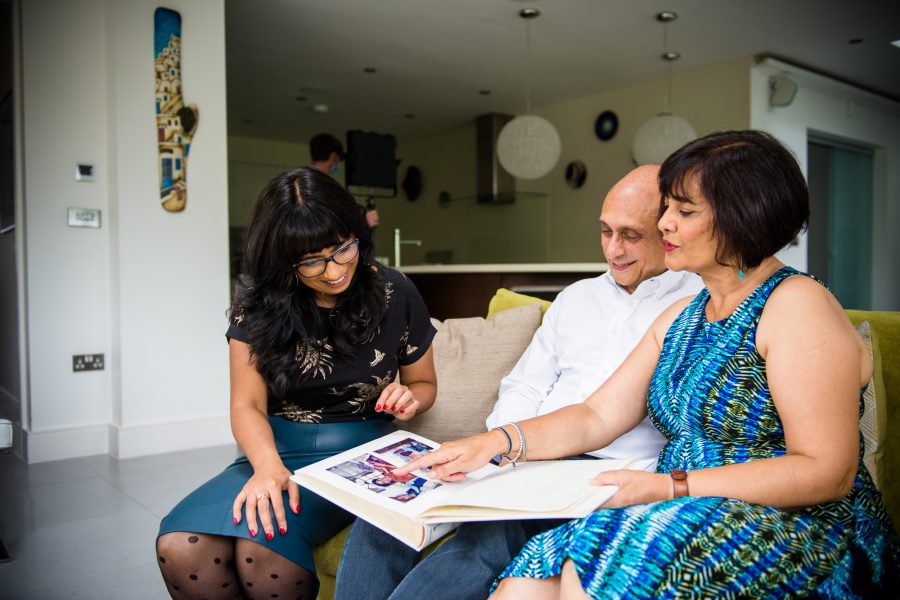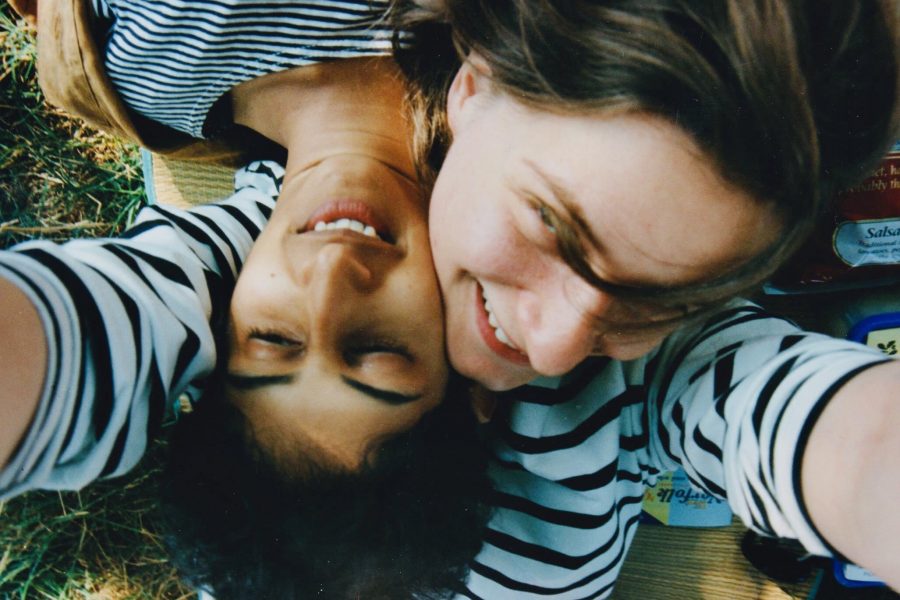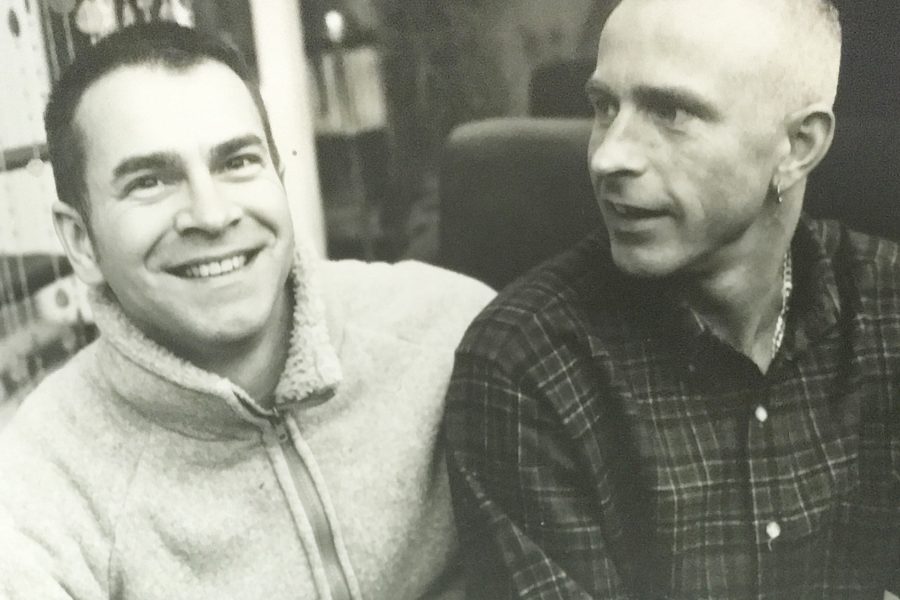We Found Love in the 80’s – A Reflection at the end of Here and Now
In March 2020, I was preparing to close down my exhibition called Jambo Cinema at New Art Exchange, Nottingham. I recall watching the news when Prime Minister Boris Johnson announced to the nation an imminent and unprecedented lockdown for all residents living in the UK. It was a surreal time and I almost felt like we were living in an ‘end of the world’ Hollywood movie.
Simultaneously, I was preparing for the project launch of We Found Love In The 80s at Warwick Arts Centre (WAC), a new exhibition and soundscape made in collaboration with musician Martyn Ware – the founder of the Human League and Heaven17. We were excited to gather stories of couples who found love in Coventry during the 1980s to inspire the creation of new work. This was when everything came to a screeching halt. Like many artists, work and income vanished overnight and the project I wanted to create so much was put on hold indefinitely.
My own artistic practice involves working with people in real life and gathering their stories to inspire immersive experiences, exhibitions and films. I enjoy collaborating with other artists to make it happen, there’s nothing more thrilling for me as a creative to be making new artistic projects with like minded people.
This is a process that can’t be rushed and given that people were isolating and fearful of catching the virus in May 2020, when the project was due to start, I realised this project was not going to happen in the way we had hoped it would.
Warwick Art Centre closed its doors but the money was already set aside from Future Arts Centres for my project. As someone who is a dynamic producer and artist, I kept thinking about solutions and how I might make this project happen during lockdown. I asked to be released from the contract from WAC and approached Waltham Forest Council and Barbican Centre who stepped in and became partners on the project.
It seemed to be even more important to do this project because older people (who were the demographic I wanted to interview) were shielding as per government instructions. It was a time when these people were thinking about their lives pre-lockdown and looking through photos and of course, missing loved ones.
Some unprecedented and tragic things happened in 2020. We all witnessed the public and shocking death of George Floyd and it fundamentally changed us as a society. The whole world was jolted awake and we entered into a time of mass Black Lives Matter protests. My friends, family and colleagues were sharing their experiences and thoughts on how people were turning against each other. People felt suspicious of each other and there was a rise in reported hate crimes across the UK. I experienced it myself and while I can’t change the world, I thought this project might have a positive impact on the situation.
I decided that We Found Love In The 80s would be about celebrating the diversity of Britain through love stories. For me the timing of the project felt very important as through it I wanted to tackle homophobia, racism and hidden prejudices. It felt like we had entered a time of intolerance within our society on a global scale, and I hoped this project might offer an alternative perspective. As a socially engaged artist, I believe it is part of my role in society to create a path for discussion and dialogue through creativity. This is the quiet activism within my work where I tackle difficult and distressing subjects indirectly in my artworks.
The 2020’s seemed to be becoming a decade that had so many parallels with the 1980’s – high levels of unemployment, poverty, a deadly virus, rich people profiting in times of crisis and racist attacks on the rise, all the while under the Conservative government.
I was determined to make this work but it needed to change form if it was going to be accessible to audiences. I Found Love in the 80’s transformed into a fully digital project, comprising of a 30 minute film, soundscape and blog. The project shifted from a Coventry focus to a national one, where anyone across the country could participate in the project and they did. With Martyn’s and Heaven17 fans’ help, we had a brilliant response to the online call out through social media. We had approximately 40 couples contact us and from these 10 were selected to share their stories.
In Summer 2020, when lockdown was eased we managed to interview the couples in person, while observing social distancing regulations. It was a great honour, they allowed us to enter their homes and shared the intimate worlds of their relationships.
The couples we interviewed were all vastly different. As the interviews unfolded, I realised that we had created a project which was about love and connection between people through the backdrop of social, political and environmental history. It was fascinating hearing about their lives and the struggles they had experienced and overcome. At a time when so many of us were struggling in different areas of our lives, we really needed to hear stories of hope.
We met and featured couples who talked about mixed race relationships and Black Lives Matter, gay couples who found love in a nightclub but also shared their fear of AIDS, people who lived through the Aparteid in South Africa, the prejudices of the Indian caste system. We also explored traditional arranged marriages and forbidden relationships during the Cold War. It was so diverse! These stories demonstrated that people love each other despite differences of culture, race or religion.
They were not just interviewees, they became friends. The entire team said they learned so much by listening to their experiences, especially about the gay lives and how section 28 impacted and margincalised the queer community at the time. It’s one of the delights of this job, constantly learning about the world through people’s lives.
The film premiered as part of Barbican’s festival, Leystonstone Loves Film in October 2020, and we had a brilliant audience reach across the country as well. For me it was fascinating to experience the way this project attracted a national audience, as usually I work with audiences in a very localised way through physical exhibitions and installations. In this new format more people than I had hoped were able to participate in and experience the work.
We had so much brilliant content from the interviews that made fascinating listening, we decided to make a podcast which was released in February 2021, and selected by the Guardian as their top picks for podcasts. At Wolverhampton Literature Festival, we screened the film and hosted a live Q&A with the gay couples who feature in the film, to coincided with the release of Channel 4 drama series It’s A Sin, by Russell T Davies.
I am proud to have played a small role in celebrating the everyday lives of people during the Covid-19 pandemic. I was one of the 9 artists, responsible for shaping the briefs for Here & Now 2020, and for us – it was essential to bring a message of community connection, love and hope into the projects. I feel We Found Love In The 80s did just this. The key message that came through the interviews was about the importance of friendship, kindness and hope and audiences responded with thanks to us for having created such a positive piece of work during dark times.
We Found Love In The 80s was originally commissioned by Warwick Arts Centre for Here & Now 2020.
The project would not have been possible without the people who shared their stories and the talented creative team behind telling those stories with care. A special thank you to:
Martyn Ware, Anthony Davies, Dee Patel, Charles Stooke, Abigail Vyner, Wilna Forne, Lara Defense, Abby Lemon and Sarah Shalgosky and Doreen Foster.
Couples
Saroj and Kamlesh Vora, Geeta and Subash Ludhra, Jitka and Mark Palmer
Ian Bodenham and Ian Johns, Anne and Mark Redelinghuys, Alex and Ayan Lowe
Helen Juffs and Deirdre Figueiredo.
A very big thank you to Future Arts Centres for bringing together arts centres across the UK for Here and Now 2020, celebrating 25 years of the National Lottery and good causes.







